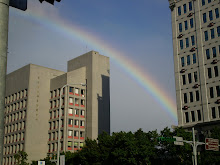Dutch officials don’t know what to do about Holland’s drug culture. Near the Ministry of Justice in the Hague, and visible from its windows, is an area of the Dutch capital where many of the unemployed grow marijuana for a living. While continuing to receive about $1,200 per month from the state for doing nothing, they earn up to $6,000 a month as well (tax free, of course) by cultivating pot in their apartments. The easy money, observers report, has reduced the crime rate.
It still isn’t legal in Holland to grow or to sell marijuana, but apart from occasional police raids, not much effort goes into suppressing the trade. Such prosecutions as there are result in confiscation of the horticultural equipment (which the drug-dealers replace within the week) and an easily affordable $1,200 fine.
The minister of justice does not like the trade but is in a quandary about how to respond. Three possible courses of action present themselves: to take serious measures to suppress the trade; to legalize it, either by creating a state monopoly or by allowing anyone to grow and sell the drug; or to allow the present situation to continue. All three have their inconveniences.
Suppression would drive up the price of marijuana, reinforcing the motive for breaking the law. The increased risk of growing marijuana might easily spark a resurgence of gangsterism; and people deprived of their easy income by enforcement of the law might turn to more harmful or visible types of crime to maintain their now accustomed standard of living.
The legalization of the cultivation and distribution of marijuana in turn would drive down the price and deprive the unemployed of much of their income, drastically reducing their now accustomed standard of living. Thus it too might produce not a decrease but an increase of serious crime.
The inconveniences of allowing the present state of affairs to continue are less tangible but also considerable. No doubt laws have always been on the books whose purpose is more to promote discretion among those who break their precepts than to enforce strict adherence; but widespread, open, and profitable lawbreaking will before long exert a corrupting effect upon the whole of society. If the state winks at large incomes procured by what it still considers to be criminal activity, why should anyone feel obliged to obey the law? The minister of justice does not think that the state should allow its least educated, productive, and respectable class to defy it.
MY VIEW POINT
The article is mention about many people in Holland is planting marijuana to live their live. So their government do some measures to prevent many other smuggle and the risk group to control the marijuana price. And they decide to let take drug to be legal in their society. According to this article is say “The legalization of the cultivation and distribution of marijuana in turn would drive down the price and deprive the unemployed of much of their income, drastically reducing their now accustomed standard of living.” So it is relation between the criminal rate and the drug. It is conform to our topic.
by 61105 江趙展

2 則留言:
Yes. You are right. However, this article also mentions the opposite viewpoints. So, you must be very careful to define which is right and which is wrong.
I did not see the other two related articles.
張貼留言